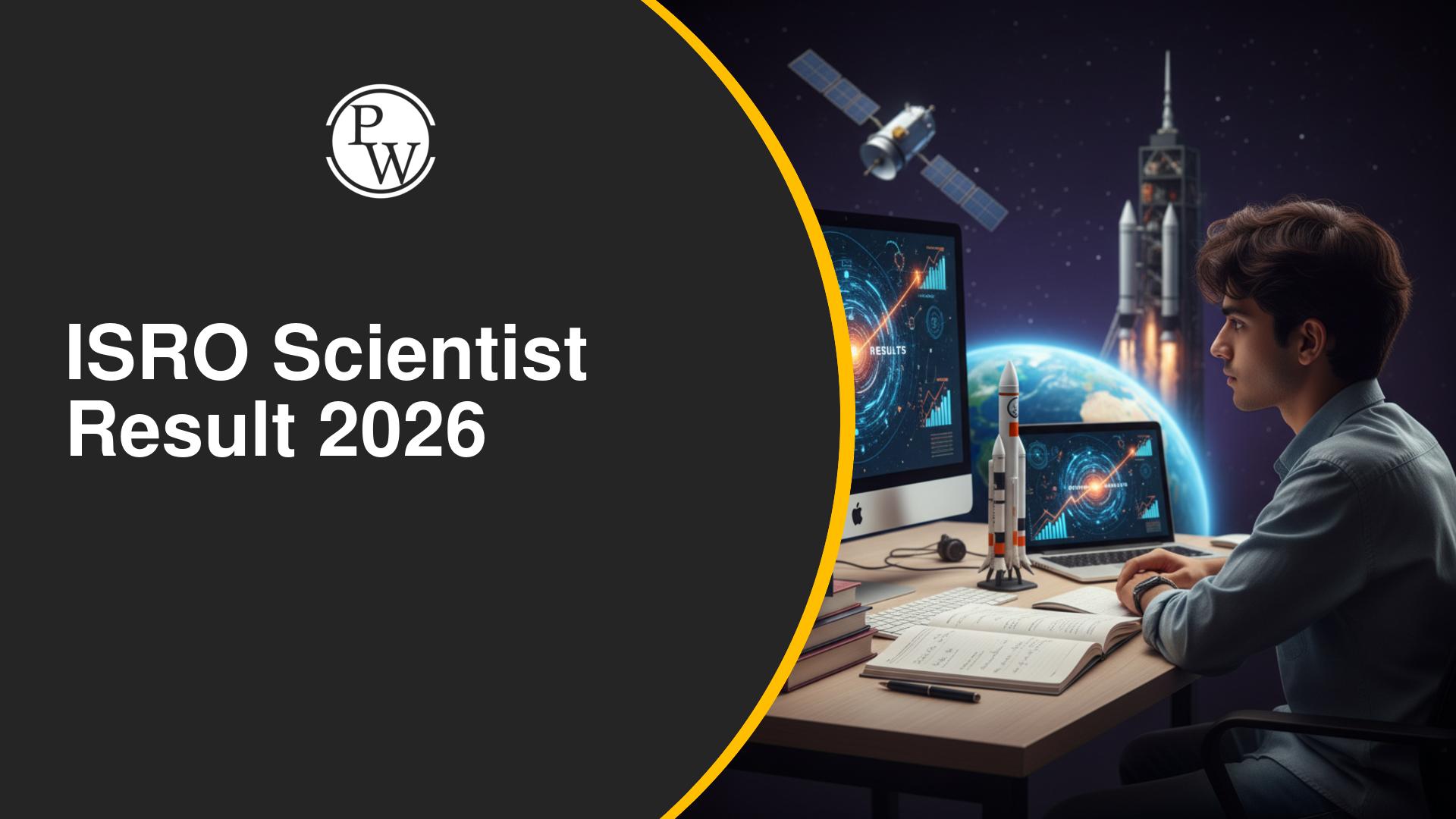
Electrical Engineering Scope - For many years, electrical engineering has been one of the most popular degrees both in India and abroad. Every day, as India's economy expands, new opportunities emerge. The study of electricity, electronics, and electromagnetics as they relate to the creation and maintenance of electrical and electronic equipment is the emphasis of the well-known degree in this field, electrical engineering.
Among the industries in which they operate are computer chips, industrial machinery, large power plants, computer hardware, and electrical motors. To learn more about the scopes of electrical engineering, keep reading the blog!Scope of Electrical Engineering
The relevance and fascination of electrical engineering remain unchanged from the time that Nikola Tesla was attempting to determine the ultimate power of electricity. Despite the headlines' tendency to lead one to believe that computer programming, design, and mobile applications are the only cutting-edge technologies worth pursuing, electrical engineers are necessary for all of these endeavors to be possible. Even the Tesla car company would not be able to survive without the discipline of electrical engineering and a group of people who understood how to operate an electric vehicle and extend its battery life (still an area in need of more engineering innovation). Future employment in electrical engineering is expected to be both enormous and tiny. Electrical engineers will be able to choose between working on the intricate circuits that comprise personal computers or the large devices that control entire power networks or spacecraft.Electrical Engineering Scopes
There were several options after electrical engineering. The industrial sector needs electrical engineers. Almost all businesses have engaged electrical engineers at some point, whether it be for little project equipment or large items and equipment. Chemical and electronic engineering is the only field in which an electrical engineer is actively involved. They create, engineer, and test a vast array of products and machinery that are useful in both daily life and industry.Power Engineers
Among the top careers in electrical engineering is becoming a power engineer. You will design, run, and troubleshoot the systems that produce and use electrical power in your role as a power engineer professional. In addition, you have to make sure that power plants, electric grids, and other energy systems run safely and effectively. A background in electrical engineering and the necessary professional certificates or licenses are prerequisites for becoming a power engineer.Range: After electrical engineering, one of the greatest career paths is to become a power engineer because this job profile has many opportunities. Power generation, distribution, renewable energy, energy management, transmission, and energy storage are all possible career paths. You can also work in utilities, manufacturing, construction, and other industries.
Power engineers are responsible for many tasks, including the design, implementation, and maintenance of power systems. Along with managing several projects, they have to manage the safety and compliance of power while providing technical help to the team and collaborating with other teams and third-party people on bigger projects.Control Systems Engineers
One of the best careers you may choose from following electrical engineering is control systems engineer. An expert in designing, analyzing, and maintaining systems that regulate the behavior of other systems, including machinery or processes, is known as a control system engineer. The development and implementation of control algorithms and the optimization of system performance need the use of mathematical, physical, and engineering principles. There are numerous employment options for Control Systems Engineers in a variety of industries, including aerospace, automotive, manufacturing, energy, robotics, and many more. Additionally, the demand for automobiles, AI robots, and machinery is rising, which is driving the growth of these businesses. It makes them suitable for working and developing successful careers in electrical engineering for yourselves. Control systems engineers are responsible for a wide range of tasks, including planning and creating control systems, analyzing system requirements, testing, commissioning control systems, troubleshooting control system issues, documenting created designs and obtaining approval for their creation, and much more. As you get experience, your level of responsibility will rise.Research and Development Engineers
Becoming a research and development engineer is one of the best professions after electrical engineering if you are interested in discovering new things in the area. A professional who designs, develops, and tests new goods, processes, or technologies is known as a research and development engineer. Research, data analysis, and the creation of new product prototypes will be the main responsibilities of an R&D engineer. Looking for several career scopes is necessary if you want to establish one of the best electrical engineering professions for yourself. Working in technology, manufacturing, aerospace, consumer products, energy, chemicals, and even the healthcare sector are the fields in which an R&D engineer can find employment. This job involves a lot of duties because you will be researching and creating new items for the relevant company. An R&D engineer must gather information, do research, and then create new product prototypes. Once it has been approved, you will work on its development alongside other team members and occasionally with other teams as well.Electronics Engineers
If you enjoy learning about the world of electronic devices, being an electronics engineer is one of the best options for a career in electrical engineering. You will be designing, developing, and testing electronic systems and components, such as circuits, devices, and communication systems, as a professional electronics engineer. To do this, new and improved technologies will be created utilizing your knowledge of electrical theory, materials science, and mathematics. Jobs in electrical and electronics engineering are widely available in a variety of lucrative and rapidly expanding industries. Research & development, automotive, telecommunications, aerospace, the medical field, consumer goods manufacturing, and even the defense sector are some of the most prominent organizations to work in. One of the many responsibilities of an electronics engineer's job is to design and construct electronic circuits, and then to test and assess such electronic systems. In order to guarantee that electronic equipment and systems are operating as intended, you must also troubleshoot issues and offer solutions. In general, electronic engineers are vital to the development of technology and the construction of the modern world.Robotics Engineers
With artificial intelligence and robotics taking the globe by storm, One of the top career options in India for electrical engineers is to become a robotics engineer. You will design, construct, and maintain robotic systems in your role as a robotics engineer. You can work on control systems, programming, sensors, and other areas of a robot's design. The principles of software, electrical, and mechanical engineering will be applied to all of this. Excellent robotics engineers are needed in many industries. Manufacturing, education and research, defense, automotive, agricultural, and healthcare are a few of the high-paying and expanding fields for robotics engineers. To be employed, all you have to do is choose the industry that most interests you and tailor your skill set accordingly. When you choose one of the best careers after electrical engineering, you also take on some obligations. The tasks of a robotics engineer include designing and developing robotic systems, developing their algorithms, testing, and assessing them. In order to develop creative and effective robotic solutions, robotics engineers occasionally also work in conjunction with other specialists, including computer scientists, mathematicians, and physicists.Renewable Energy Engineers
One of the best careers after electrical engineering is becoming a renewable energy engineer if you support sustainable development and renewable resources. Designing, creating, and implementing renewable energy systems and technologies, such as solar, wind, geothermal, hydro, and biomass, is the responsibility of a renewable energy engineer. Your efforts are intended to lessen the adverse effects of climate change and decrease dependency on non-renewable energy sources. Numerous sectors are hiring renewable energy engineers due to government efforts and the growing demand for renewable energy. Wind, solar, hydroelectricity, bioenergy, and the energy sector are some of the top sectors. You can also work in the energy efficiency and smart grid sectors. It is your responsibility as renewable energy engineers to assess site-specific factors and choose the most suitable renewable energy solutions to satisfy the energy needs of a certain building or community. In addition, you must supervise the installation and maintenance of renewable energy systems, carry out feasibility assessments, and guarantee that safety standards and regulations are followed.Microelectrical Engineers
The field of electronics known as microelectronics focuses on the creation of small electronic components, such as circuit boards, semiconductors, and microchips, which are used to create electronic instruments, new biomedical technologies, information technologies, aerospace equipment, etc. Microelectronic engineers design and construct prototype circuit boards, semiconductors, and electronic circuit chips. They create new designs, carry out specialized testing, and gather and analyze data regarding how well the new models are working. With a vast career scope, this is one of the top careers after electrical engineering. The market for microelectronics, such as semiconductors and microchips, has grown by 26%. thereby creating a demand for skilled micro-electrical engineers. The tasks of micro-electrical engineers vary according on their experience and the size of their team. These responsibilities include top level integration, logical synthesis, timing analysis, testing and analysis of the planned semiconductor model, design and modeling in System C or an equivalent, and much more.Electrical Engineers
Large-scale electrical systems including power transmission, motor control, using electricity, and energy transmission are often the emphasis of an electrical engineer. They create and construct new electrical systems, conduct equipment testing, and troubleshoot issues. Electrical engineers are capable of working on a wide range of technologies, including electrical power plants, satellite communications, building lighting and wiring, telecommunication systems, and home appliance design. The development and upkeep of machinery, electrical control systems, and other equipment utilized in daily living and industrial operations require the knowledge of electrical engineers. As a result, there are a lot of opportunities in this professional field after electrical engineering. Electrical engineers are responsible for designing and producing electrical products that meet client demands and adhere to current regulations. It is also their responsibility to comprehend design specifications and technical drawings, test items to ensure quality, investigate manufacturing processes, and provide service and maintenance for the electric system.Instrumentation Engineers
With the exclusive purpose of enhancing productivity, safety, dependability, stability, and optimization, an instrumentation engineer usually works with organizations with automated processes. For people with creative problem-solving abilities, the ability to translate project requirements into the design and development of hardware appropriate for the task, and strong communication skills, instrumentation engineering is one of the greatest careers after electrical engineering. An electrical engineer with a sufficient background can operate in a variety of fields, including automation, construction, railroads, machinery, control systems, manufacturing, packaging, and more. The integration of sensors with recorders, displays, transmitters, or control systems is often the responsibility of instrumentation engineers. They are also responsible for the system's maintenance and testing. In most cases, they design or specify signal conditioning, wiring, and installation.Telecommunication Engineers
If you have a solid understanding of database tables and logging, have experience designing and implementing LANs, WANs, Wireless LANs, and WWANs, and have a fair technical understanding of network hardware, internet standards, and protocols, becoming a telecommunication engineer is a good career choice after electrical engineering. You can have an excellent career for yourself if this is one of your employment options after electrical engineering. As a telecommunications engineer, you have a number of options for career advancement. You can work in consumer electronics, radio and telecommunication, aircraft, and the fabrication of analytical equipment. Telecommunication engineers are responsible for researching new network technology and making recommendations for integration. They must guarantee network accessibility and get the required maintance and assistance. People are skilled at handling data from various communication channels, including speech, text, phone, and video. They design and install many types of telecommunications equipment.Electrical Design Engineers
An electrical design engineer is a good career after electrical engineering for someone with strong communication, analytical, and problem-solving skills, who can work under pressure in a specific timeline, and who also has organizational, leadership, and creative skills, which are useful for an electrical design engineer. It's highly recommended to pursue a profession in electrical engineering. There is a lot of opportunity in electrical design engineer employment due to the numerous developments and constructions that are occurring. You can design and develop data services, uninterruptible power supplies, lightning controls, and other things while working in the infrastructure and construction sectors. New electrical systems for numerous applications are created by electrical design engineers. They are responsible for creating system design and requirements. Engineers who specialize in electrical design test their systems and make necessary modifications. Additionally, they offer assistance while the electrical systems they have designed are being manufactured.Acoustic Engineers
If you have a strong interest in sounds and voice effects, one of the best careers to pursue after electrical engineering is acoustic engineering. Acoustic consultants are experts in creating, managing, and modifying sound effects for electronic devices like speakers, radios, and cellphones. After electrical engineering, a career as an acoustic engineer has a lot of potential because you'll be working to improve people's lives. Production in the areas of architecture, entertainment, industry, environment, and transportation can employ acoustic engineers. Your duties as an acoustic engineer will include evaluating and describing sound insulation and modifying noise from aircraft, heat ventilation, and transport trucks, among other sources. Among your tasks are data analysis, prediction, assessment, and reporting.Aerospace Engineers
Aerospace engineering is one of the greatest professions to pursue after electrical engineering if you have always been captivated by rockets and aeroplanes. The experts who work on the development, design, research, and maintenance of aircraft are known as aerospace engineers. Aerospace engineers can work with space stations and aviation manufacturing businesses, contributing to the design, development, and maintenance of aircraft. This is a career path that follows electrical engineering. Aerospace engineers are responsible for designing aircraft through the application of scientific and technological concepts, conducting research and establishing design specifications, supervising the assembly of aircraft parts, participating in flight testing, and performing routine maintenance and inspections. An aerospace engineer is responsible for all of these tasks.CAD Engineers
One of the best occupations after electrical engineering is CAD engineering, provided you have a flair for both engineering and creativity and enjoy creating technical drawings. One of the careers that comes following electrical engineering allows you to produce 2D and 3D models of technical drawings in collaboration with architects and design engineers. As a CAD engineer, you will have numerous opportunities to demonstrate your excellent intellect, creativity, and talents. You can find rewarding work in architectural offices, corporations, and even government agencies. Your job as a CAD engineer will be to produce meticulous technical drawings and plans of the highest caliber using the designs that architects provide. Verify that designs adhere to security and health requirements, compute expenses, and possess an understanding of engineering concepts, among other things.Electrical Engineering Career Scope
Beyond wires and circuits, electrical engineering finds use in a wide range of industries, including navigation, trains, vehicles, telecommunications, IT, architecture, aircraft, and defense. In the fields of cable design and maintenance (Telecommunication Engineers) and power generation and transmission (Power Engineers), electrical engineers are essential. Power plant design and operation, enhanced electrical power utilization, and cost estimation for manufacturing and construction are all performed by electrical engineers. These engineers usually start off with an annual salary of INR 4 lakh or more. View the job profile for Electrical Engineering that is provided below.|
Electrical Engineering Career Scope |
||
| Job Profile | Key Responsibilities of the Electrical Engineers | Average Annual Salary (INR) |
| Electrical Engineer | Working on communication systems, electronics, and power generation projects. | 6 to 9 Lakhs Per Annum |
| Electronics Engineer | Designing gadgets, PCBs, and circuits for various applications, including consumer electronics and medical equipment. | 7 to 9 Lakhs Per Annum |
| Instrumentation Engineer | Ensuring precise data gathering and control in sectors such as manufacturing, process control, and automation. | 7 to 10 Lakhs Per Annum |
| Power Electronics Engineer | Specializing in power electronics and creating efficient electronic systems for motor drives, inverters, and converters. | 8 to 10 Lakhs Per Annum |
| Embedded Systems Engineer | Developing software and hardware solutions for IoT devices, automotive systems, medical equipment, and specialized computer systems | 8 to 10 Lakhs Per Annum |
Electrical Engineering Top Recruiters
After electrical engineering, there were several different employment careers. In the industrial sector, an electrical engineer is essential. Electrical engineers are used in almost every industry, from small items and equipment to major project equipment, etc. Prospective students interested in studying undergraduate and postgraduate degrees in Electrical Engineering can look into the following top corporations, who often hire Electrical Engineers for a variety of roles within their organizations..- Bharat Heavy Electricals Limited (BHEL)
- Siemens
- ABB India Limited
- Havells India Limited
- Adani Power Limited
- Crompton Greaves
- Jindal Steel & Power Limited
- Bajaj Electricals Limited
- Alstom India Limited
- General Electric (GE)
- Larsen & Toubro (L&T)
- Tata Electric Companies
- Philips
- Gujarat Industries Power Company Limited
- Wipro
- Kirloskar Group
- Sterling
- Schneider Electric
- EMCO Limited
- HBM Power System
Electrical Engineering Scope FAQs
Are electrical engineers in high demand?
Which country is best for studying electrical engineering?
Which skills are expected of an Electrical Engineering graduate?
Is there a future for electrical engineering?










